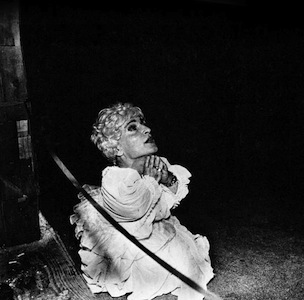Artists are expected to change their sound eventually, but for Deerhunter, it happens so often it may as well be a combined bodily function for them; they’ve gone from Kraut-inspired My Bloody Valentine wannabes to a baroque pop band in under five years. So here we have another year, another Deerhunter release – and unsurprisingly, it’s brilliant, different and sounds nothing like anything they’ve ever put out before. In case you’re concerned, it appears that the days of the Cryptograms-era ambient workouts and Microcastle’s quirky cross between metal and pop are over. So get ready for saxophones. This is Halcyon Digest.
This new sound is evident when the album opens with “Earthquake.” At first, the song is surprisingly electronic and beat-driven (perhaps a sign that new producer Ben Allen has rubbed off on them), but eventually it throws us into the middle of the trademark Deerhunter sound: arpeggios, dreamy reverb and abstract imagery in the lyrics – though quickly taking a turn into droney post rock territory. It’s a quick indicator into the level of production that befits this album, much better than anything before, and all sorts of tricks seemed to have appeared up their sleeve. “Earthquake” is the perfect opening track, but it doesn’t accurately set the mood for the whole album; up next is “Don’t Cry” and “Revival,” two slabs of bright, poppy sunshine with front man Bradford Cox’s typical gloomy, but somehow upbeat lyrics.
Ever changing, the album comes to a grinding halt here with “Sailing,” a five minute slow, one-man ode to solitude. It’s placement in the track-list is questionable, pop music’s rule book would put it traditionally towards the end of the album, but it certainly provides a breather for two of the louder songs on the record that come next – “Memory Boy” and “Desire Lines,” the latter being guitarist Lockett Pundt’s George Harrison-esque now mandatory contribution to the record, along with his later song “Fountain Stairs,” anthemic, rocking, almost Arcade Fire or U2 like in sound. And while the ending of the song is perhaps not engaging enough to warrant such a long coda, it goes to show how different and unexpected every new minute of the album is.
The whole album seems to be leading up to one moment, though, and that’s “Helicopter,” the album’s centerpiece, and possibly the band’s crowning achievement so far. A beautiful, repetitive yet constantly engaging tribute to a slain Russian male prostitute, “Helicopter” will be a song the band is remembered for in years to come, and easily the best track of the year so far. The problem here is that this song, in it’s half electronic, hazy, drenched in reverb form, is, along with “Earthquake,” a one off on the record. Had the band stuck to this sound for the entire LP, they’d have something truly unique on their hands, however these songs find their place in amongst an album full of admittedly brilliant but more middle of the road indie pop.
“Coronado,” almost disco-Bowie-like in sound, and the Jay Reatard tribute “He Would Have Laughed” are next, and just as the album starts, it ends; without leaving you any idea of where it came from and what was coming next. The credits note that “He Would Have Laughed” is essentially Bradford Cox by himself, with overdubs from the rest of Deerhunter – one would argue that this track would be better placed on an Atlas Sound record, along with “Sailing.”
The band’s fourth full length album sees them hit seemingly new levels of comfort and control in their work and, though whether that’s a good thing is a matter of personal preference, in just 45 minutes we see them explore their entire back catalogue retrospectively, while throwing some new sounds (yes, saxophone) in as they go. This feels like a stop-gap for a band on their way to creating something huge; the end result is a tightly wound, calculated little nugget of pop that will attract new listeners and definitely please fans of old. It’s dark, it’s light, it’s depressing, it’s uplifting, it’s the album Deerhunter have always been capable of making, and that Bradford Cox has never been shy in his intentions to make it. There’s nothing ground breaking in it’s execution or design, but this is a band understanding where they want to be. It has it’s faults, but every truly great album does.
Deerhunter have always seemed to fly by the seat of their pants – and throughout the years the band have definitely had its share of dysfunction. But gone are the days of blog controversy, poop diaries, and sun dresses on stage – the new Deerhunter is here. Who knows where they’ll go next?


